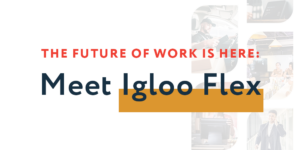How to Prevent Social Loafing in the Workplace
Social loafers sit on the sidelines while the rest of the team does the work. Learn 5 ways to ensure everyone is contributing to the end goal.


Social loafing happens when some group members put in less effort and expect others to pick up the slack. It can quietly chip away at trust, productivity, and team morale, especially in hybrid workplaces or frontline-heavy organizations. The good news? It’s preventable. With the right tools and habits, you can build a culture where every team member feels seen, supported, and motivated to contribute. This article will explore tips on how to reduce social loafing.
What is Social Loafing?
Social loafing is when people in a group put in less effort than they would if working alone. It’s not always intentional, but it’s common. Consider a field team where a few members skip steps. These team members may assume someone else will catch the details. Another example is a cross-functional office project where one person coasts while others take charge. When roles blur and accountability fades, the individual effort can drop. Over time, this lowers performance across the board. Both desk and frontline teams feel it when there’s little visibility into who’s doing what. Understanding how social loafing works is the first step to stopping it.
Why Social Loafing Happens in the Workplace
Social loafing usually begins when team members feel disconnected from their work, team, or the outcome. This disconnection typically stems from vague roles, unclear expectations, or poor communication. When ownership isn’t clearly defined, people tend to assume someone else will step in. On the other hand, when effort goes unrecognized, motivation starts to fade.
For hybrid and frontline-heavy teams, the risk only increases. With fewer face-to-face check-ins and more asynchronous workflows, uneven effort can slip through unnoticed for a while. Frontline staff may not have the same access to updates or tools as their desked counterparts. This creates silos that weaken accountability.
This sense of disconnection isn’t rare. A Harvard Business Review study found that 40% of employees feel isolated at work. This factor quietly fuels social loafing. Team members who feel unseen are less likely to take initiative or feel ownership over their contributions. That’s why creating a culture of clarity and belonging is critical, especially across distributed teams.
IGLOO INFOGRAPHIC
4 Actionable Approaches to Engagement

What Social Loafing Costs Your Team
When one person puts in less effort, it affects more than just the task. Social loafing erodes trust. Team members who consistently carry the load start to feel frustrated or resentful. That tension lowers morale and chips away at collaboration. Productivity takes a hit, too. Projects stall, errors slip through, and momentum fades.
In frontline-heavy organizations, these effects can show up fast. A missed checklist item on the floor can delay an entire shift. A breakdown in communication between field and office teams can throw off timelines or affect customer service. Over time, social loafing can create a culture of minimal effort, where doing the bare minimum feels normal.
Managers and team leads often feel stuck when they can’t see where the drop-offs are happening. But with better visibility and tools built for accountability, you can catch issues early and course-correct with confidence.
How to Spot Social Loafing Early
Wondering how to avoid social loafing in your workplace? It starts with clarity, visibility, and the right tools. Social loafing can be easy to miss at first. It doesn’t always show up as an outright refusal to work. It may look like silence in team chats, vague updates, or consistent delays. In an office, it might be the person who always has an excuse for missed deadlines. In the field, it could be tasks left half-done or communication that drops off without notice.
Lack of input is another giveaway. Those who disengage tend to avoid decisions, skip meetings, or nod along without contributing. Over time, this pattern hurts team alignment and output. The sooner you spot it, the easier it is to step in with support, not just correction. A strong intranet platform can help surface these gaps before they affect the entire group, giving you the insight to act quickly and fairly.
5 Ways to Reduce Social Loafing
Preventing social loafing requires clarity, visibility, and tools to keep everyone in sync. Any team can use five practical strategies to keep accountability strong, engagement high, and effort consistent.
1. Set Clear Roles & Responsibilities
People are more likely to follow through when they know what’s expected of them. Clear roles reduce confusion and help prevent finger-pointing. With Igloo Software, you can assign tasks and outline expectations in one place from any device. That clarity keeps everyone on the same page in fast-moving or shift-based environments.
2. Increase Visibility Across Teams
Transparency builds accountability. When teams can see progress, responsibilities, and outcomes, hiding underperformance is harder. Igloo Software gives managers and teammates real-time access to updates, activity, and contributions across departments and locations. Whether someone is in the office or on the floor, visibility helps teams prevent work from slipping through the cracks.
3. Strengthen Communication Between Desk & Frontline Employees
Gaps in communication often lead to gaps in effort. When frontline teams feel disconnected from office-based decisions, or vice versa, it’s easy to disengage. We bridge that gap with mobile-first communication tools that keep everyone in the loop. Announcements, chats, and updates reach your entire workforce, so no one’s left guessing what matters or what’s next.
4. Make Recognition Public and Consistent
Recognition motivates people to show up and do their best. When effort gets noticed, it’s more likely to be repeated. With Igloo Software, you can spotlight wins across teams, big or small, using shout-outs, kudos, or announcements. Recognition becomes part of the workflow, not an afterthought. It reinforces shared standards and strengthens team morale when it’s visible to all.
5. Encourage Team Collaboration
Social loafing thrives when people work in silos. Collaboration helps break that pattern. Igloo Software offers shared spaces where teams can brainstorm, solve problems, and make decisions, no matter where they work. These tools encourage ownership and teamwork in the workplace.
Why are Communication Tools Important?
Great employee communication software does more than help people talk. It helps people stay connected to the work, the mission, and each other. When teams are spread across offices, job sites, or shifts, communication becomes the thread that holds everything together. Without it, updates get lost, roles blur, and engagement drops.
That’s where the right tools make a difference. Igloo Software gives organizations a central space for real-time updates, mobile access, and consistent messaging. Whether someone’s starting a shift or logging in remotely, they see the same information and stay in sync.
By making communication easily accessible, we eliminate the disconnect that often leads to disengagement. All employees stay informed and involved, which is key to preventing social loafing before it starts.
Build a Culture of Accountability & Trust
Fixing social loafing isn’t just a matter of correcting slack behavior. It’s about building the right kind of team environment. It is one where people know what’s expected, take pride in their contributions, and trust that their teammates are doing the same. That kind of accountability doesn’t happen by accident. It starts at the top and needs support from the tools your team uses every day.
Igloo Software helps leaders create that kind of consistency. You can clarify expectations, track follow-through, and show how individual efforts contribute to the group. When visibility is part of the workflow, trust grows naturally. And when people can see their impact, they’re more likely to stay engaged. Over time, you build a team that works together without anyone having to chase or carry others.
Learn how to improve culture →
Keep Everyone Connected & Engaged
Social loafing isn’t inevitable. It results from unclear expectations, weak communication, and a lack of shared visibility. But when your teams are aligned, connected, and recognized, accountability becomes part of the culture. That’s how you build a productive workforce, whether people are at a desk, on the floor, or in the field.
Igloo Software helps you put the structure in place to make that happen. With mobile access, clear roles, and real-time updates, it’s easier to keep every employee informed, engaged, and pulling in the same direction.
Ready to see how Igloo can help your teams show up and stay aligned?







